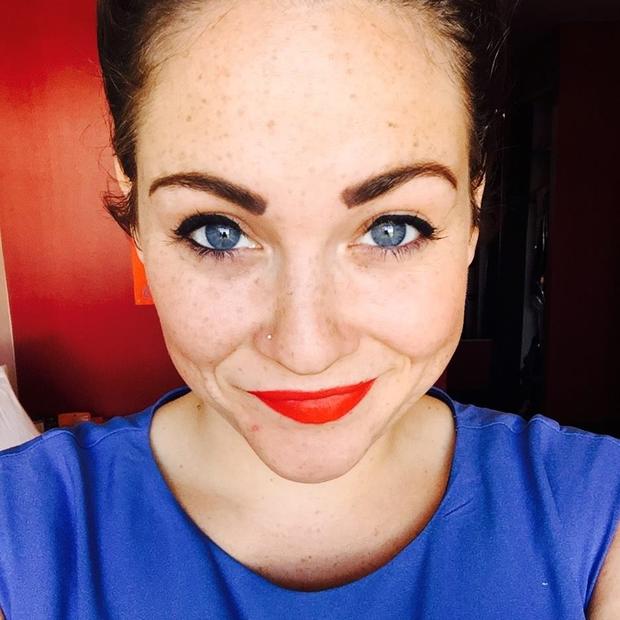Last week, Gender Justice League executive director Danni Askini — a well-known and liked civil rights activist — dropped out of the crowded race for the 43rd Legislative District, a Northeast Seattle seat left vacant by Rep. Brady Walkinshaw’s decision to run for the 7th Congressional seat.
Askini’s departure left a big question mark over the race. Despite six other individuals having announced their candidacy for the seat, Askini’s campaign had drummed up the most earned media, as she would have been the first openly trans person to serve in Washington State Legislature. The absence of an apparent frontrunner was particularly palpable on Sunday, when the King County Young Democrats hosted the first debate between the candidates.
From where I sat at the event — which I moderated, alongside KCYD chair Michael Maddux and Noah An, who chairs the Young Democrats of the University of Washington — it was clear the candidates are still trying to figure out where they fit at this early stage. Not just in the context of a race, but in relation to each other.
Which isn’t really anything new for the 43rd LD, a seat which has historically served as a springboard for new political careers.
As self-identified urbanists (all of them raised their hands when asked if they considered themselves as such) and Democrats, the candidates noted more than once that there wasn’t much daylight between their policy ideas.
But that was exactly accurate, and some of their disagreements (or, perhaps more accurately, the blind spots) spoke volumes about the candidates: trial lawyer Dan Shih, long-time LGBTQ advocate Thomas Pitchford, Downtown Emergency Service Center (DESC) Director of Housing Nicole Macri, Washington Environmental Council staffer Sameer Ranade, attorney and former 43rd District Democrats chair Scott Forbes, and Microsoft labor organizer Marcus Courtney.
With six candidates all attempting to hit their talking points, it was difficult to get in more than a few questions during the two-hour debate. Topics we regrettably did not get to address included climate change, safe injection sites, LGBTQ rights (including I-1515), and social justice issues.
We did, however, get a chance to ask about some other pressing issues — the McCleary decision and the Legislature’s failure to fully fund education, income inequality, housing affordability, Washington’s regressive tax structure, gun responsibility, and the gridlock in Olympia all made the cut.
The questions were more wonky than pop-policy, because at this juncture, we’re all trying to figure out who’s been paying attention to politics as they exist, not as we think they should be.
Differing policy and process ideas emerged quickly. Shih refused to say whether or not he would repeal the tax on tampons and other feminine products, saying that he’d “made my stance on that clear,” after stating that he’d like to lower all sales taxes. Courtney was the sole candidate to say he agreed with House Speaker Frank Chopp’s divisive decision to oppose the Preservation Tax Exemption, which would have incentivized the creation of more affordable housing by developers. While Forbes said he would decidedly not reach across the aisle to work with Republican legislators who are under the thumb of the gun lobby, Pitchford, Randade, and Shih all said they were staunchly in favor of compromise on gun control policy and other divisive issues.
Legislating style was also a breaking point for the candidates, as Macri hammered on the fact that Democrats were doing a poor job of coordinating campaigns and elevating rising stars in the party as a method of combatting the frequent loggerheads on the statehouse floor, while Ranade emphasized the need to build coalitions with Republicans.
It was also apparent that several of the candidates already had favorite talking points. Courtney bent nearly every question back toward income inequality. Ranade told me afterward that he’d wished we’d gotten around to climate change, his forte. Macri, a leader on housing-first policies, had the most salient points around the city’s Housing Affordability and Livability Agenda (HALA), though every candidate supported lifting the ban on rent control.
All things told, the debate felt slightly scattered, given the depth of the field and the early date. Unlike other active races at the moment (like the 7th Congressional race, which is being fought by three individuals who have previously held a seat in Olympia), the 43rd represents a field of candidates who have varying degrees of familiarity with this process, many still figuring out how to answer questions diplomatically, offer solutions instead of rote talking points, and generally win the audience with their answers.
The 43rd is a safely blue seat, and one where political newcomers and deep benches are fairly common. Rep. Jamie Pedersen began his political career with election to the seat in 2006, filling the spot vacated by now-Mayor Ed Murray’s move to the Senate. During that race, too, there were six candidates, including former Seattle City Councilmember Jim Street, and Stephanie Pure, who was, at the time, an aide to then-Seattle City Councilmember Peter Steinbrueck. Murray held that seat since he was appointed in 1995, his first political position. In 2006, Washington still had partisan primaries, so with just 23 percent of the vote in the primary, now Sen. Pedersen was guaranteed to win against token Republican opposition in the general. This year the race is likely to be a Democrat on Democrat after the field is winnowed on August 2.
Which is to say that there’s nothing uncommon about a race that includes individuals from a variety of backgrounds and experience levels. We’ll likely see the candidates become more competitive as they seek to refine their policy ideas, become more comfortable fielding questions they may not have expected—and especially, create daylight between themselves and the rest of the contenders.
--
Join KCTS 9 and Crosscut for a one-hour debate between candidates running for the 7th Congressional District seat on May 25 at 6:30 p.m. Register for the debate here.



